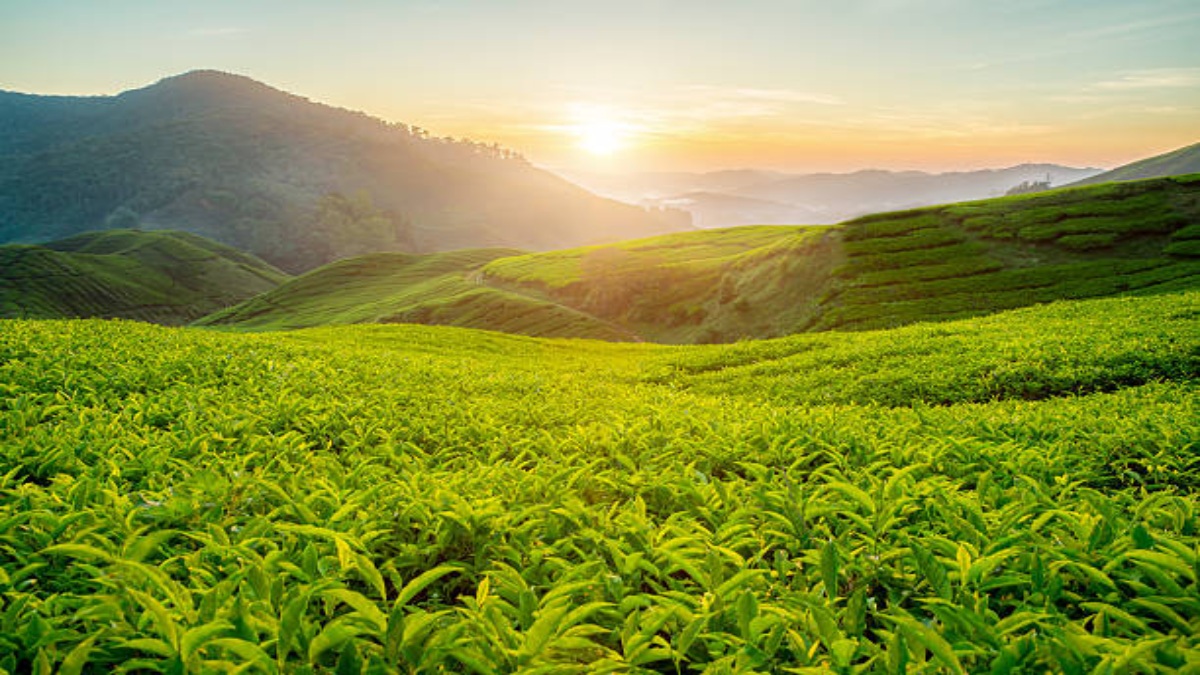High Mountain Oolongs, also known as Gaoshan Oolongs, are a type of tea highly prized for their unique growing conditions, exquisite flavors, and rich cultural heritage. These teas originate from the high-altitude mountain regions of Taiwan, with elevations typically ranging from 1,000 to 2,500 meters (3,280 to 8,200 feet) above sea level. In this article, we will explore the fascinating world of High Mountain tea and provide you with valuable insights into what makes them so exceptional.
1. Elevation Matters:
High Mountain Oolongs are aptly named because their cultivation occurs at high altitudes. The elevated growing conditions significantly impact the tea’s flavor profile. The combination of abundant sunlight, lower temperatures, and pristine mountain air results in teas with distinct characteristics and complex flavors.
2. Pristine Mountain Environment:
The environment in which High Mountain Oolongs grow is crucial to their quality. These teas thrive in pristine, remote mountain regions where pollution and industrial influences are minimal. This pure environment ensures that the tea leaves remain free from contaminants and develop naturally rich flavors.
3. Varied Terroirs:
High Mountain Oolongs are not limited to a single growing region. Taiwan boasts several high mountain areas, each with its unique terroir that influences the tea’s characteristics. Some famous high mountain regions include Alishan, Li Shan, and Da Yu Ling. Each region offers tea with distinctive flavors and aromas.
4. Hand-Picked Excellence:
High Mountain Oolongs are typically hand-picked by skilled tea farmers. This labor-intensive process involves selecting only the young and tender leaves and buds, ensuring the best quality and flavor.
5. Semi-Oxidized Magic:
High Mountain Oolongs are semi-oxidized teas, which means that the tea leaves are partially oxidized before processing. The level of oxidation varies and contributes to the tea’s flavor profile. The range can extend from lightly oxidized, closer to green tea, to heavily oxidized, akin to black tea.
6. Complex Flavor Profiles:
The flavor of High Mountain Oolongs is incredibly complex and often described as floral, fruity, and vegetal. Each sip can bring forth a spectrum of tastes, from orchid-like florals to fruity notes like lychee, guava, or pear, and even undertones of fresh vegetables or herbs.
7. Aromatic Bliss:
The aroma of High Mountain Oolongs is equally remarkable. When brewed, these teas release fragrances that transport you to the mountain landscapes where they are grown. The aroma is a vital part of the overall tea-drinking experience.
8. Multiple Infusions:
One of the remarkable qualities of High Mountain Oolongs is their ability to be steeped multiple times. With each infusion, the leaves release different layers of flavor, allowing you to savor the tea over several cups.
9. Minimal Processing:
To preserve the natural qualities of the tea leaves, High Mountain Oolongs undergo minimal processing. The leaves are withered, rolled, and then subjected to multiple stages of oxidation, firing, and shaping. This gentle approach helps retain the tea’s unique characteristics.
10. Expert Craftsmanship:
The making of High Mountain Oolongs involves a deep understanding of tea craftsmanship. Tea masters with years of experience oversee the entire process, from plucking the leaves to firing and shaping them. Their expertise is instrumental in producing these exceptional teas.
11. Seasonal Variation:
The time of year when High Mountain Oolongs are harvested significantly influences their flavor. Spring harvests are celebrated for their fresh, vibrant character, while summer and winter harvests may yield teas with slightly different profiles.
12. Brew with Care:
To fully appreciate High Mountain Oolongs, it’s essential to brew them with care. Water temperature, tea leaf quantity, and steeping times all play a role in bringing out the tea’s best qualities. Experimenting with these variables can lead to a tailored tea-drinking experience.
13. Health Benefits:
Like many teas, High Mountain Oolongs offer health benefits. They contain antioxidants, vitamins, and minerals, which may support overall well-being, aid in digestion, and contribute to relaxation.
14. Part of Taiwanese Culture:
High Mountain Oolongs hold a special place in Taiwanese culture and are often enjoyed in traditional tea ceremonies. The appreciation for these teas has been passed down through generations and is an integral part of the Taiwanese tea heritage.
Conclusion
In conclusion, High Mountain Oolongs are treasures of the tea world, celebrated for their exquisite flavors, pristine growing conditions, and the skillful craftsmanship of tea masters. Whether you’re an avid tea connoisseur or new to the world of oolong tea, exploring the complexity and beauty of High Mountain Oolongs is a delightful and rewarding journey. Each sip of these teas is an invitation to connect with the natural splendor of Taiwan’s high mountain regions and experience the richness of its tea culture.
